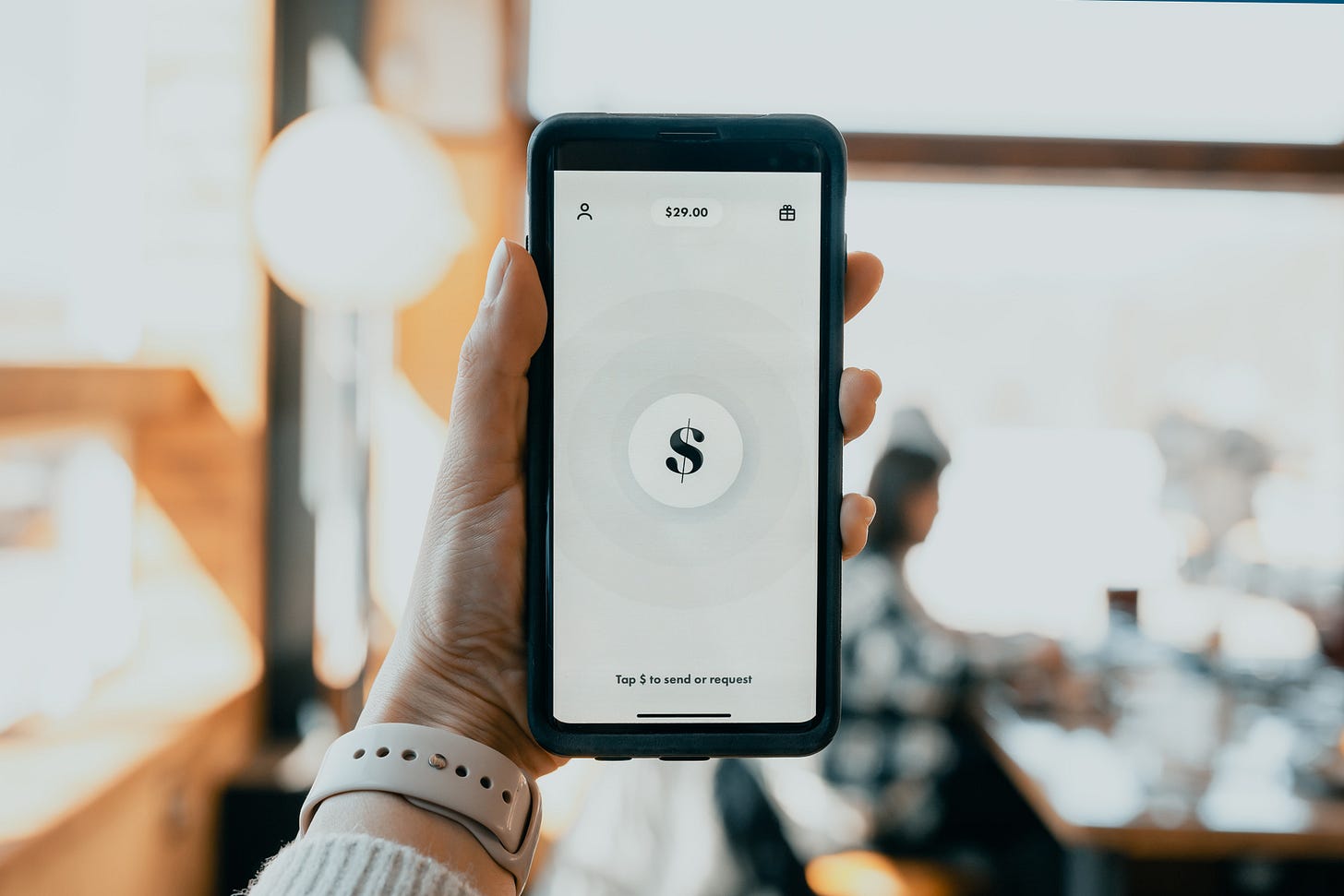The dopamine hit of seeing a stimulus check hit your bank account hits almost as hard as the stress when you see it all disappear a day later. Anyway, here’s a summary of the article in case you don’t want to read.
Summary
Banks have screwed over their customers many times in the past, but nobody really has another option to store their savings and borrow money.
Decentralized finance has the potential to be a great alternative because it cuts out the middleman with the help of blockchain-based networks.
I tried getting started with decentralized finance and I was freaking out because I thought I lost $1200.
Because of how hard it is to get started and how scary blockchain is to the average person, it’s going to take a while for decentralized finance to go mainstream.
A rollercoaster of emotions
Today, we’re going to sit down and hear the story of how $1200 of my money vanished in thin air. But don’t worry, this article’s not going to just be about me and my stupidity. We’re also going to talk about an exciting new space called decentralized finance and the advantages that it can offer over traditional banks.
Why everyone hates the banks
It’s hard to believe that anyone trusts the banking system. Going through every shady thing that banks have done in the past twenty years is kind of like trying to go through every crime that Jeffrey Epstein committed — so let’s just focus on one recent case with Wells Fargo. Last year, the company had to pay a $3 billion fine to the Justice Department. From 2002 to 2016, Wells Fargo employees who realized they couldn’t hit their quotas decided it was easier to just screw over existing customers. The employees opened up millions of accounts behind customers’ backs and even transferred money out of their accounts.
Plus, taking out a loan from a bank isn’t exactly a fun process for anyone. To get a loan, you need a good credit score, but it’s often calculated in a way that completely goes against any conception of fairness and common sense.
The loan process is especially bad for Blacks and Latinos, who are less likely to get loans than their white counterparts. When they’re trying to buy a home or start a business, they’re often at the mercy of some Karen underwriter who spends her free time sharing Kamala Harris conspiracies to her 58 Facebook friends.
The way out: decentralized finance
No matter how much people hated the banks, they kept using them. It wouldn’t matter if Wells Fargo employees were kidnapping the firstborn child of every customer — banks still offered the easiest and most secure way to deposit money. But recently, a new alternative has emerged: decentralized finance.
Decentralized finance protocols like Compound have the potential to provide better financial services to both savers and lenders. What makes these services so interesting is that they aren’t controlled by any one company — instead, they run on smart contracts built on blockchain networks like Ethereum.
That means there are no Wells Fargo employees standing in the middle who can manipulate your savings. The flow of money is determined by code. Savers can put cryptocurrency into the protocol so they can earn interest. Borrowers can put some of their crypto in as collateral and take out a loan if they’re in need of some capital. The code does all the hard work of matching these two groups together.
Because protocols like Compound have effectively cut out the middleman, they can leverage their capital far more efficiently than traditional banks. Right now, Compound offers a 6% interest rate for DAI, a stablecoin that’s designed to match the price of the U.S. dollar. On the other hand, Wells Fargo offers an interest rate of just 0.01%.
No middleman also means less potential for unfair discrimination. Instead of having your financial future controlled by some Karen underwriter, the underlying code and algorithms determine what interest rates you’ll get based on supply and demand.
Why I thought I lost $1200
I decided I was sick of the 0.01% interest that Wells Fargo gives me on my savings account. So I decided to give decentralized finance a shot. I found a mobile app called Dharma which would make it easy for me to put money on protocols like Compound and start earning interest on the crypto I already owned.
I started things off by moving about $1200 worth of assets from my Coinbase Pro account to my Dharma account. I waited a few minutes for the transaction to process. I saw the money leave my Coinbase Pro account. But then it didn’t arrive in my Dharma account. It looked like the money that I transferred just disappeared.
I’ve read stories online of people accidentally transferring crypto to the wrong address. I wondered if that was what happened. It didn’t make any sense — all I did was copy and paste the address from my Dharma app into Coinbase. I wondered if I somehow accidentally put in a stray letter and ended up sending my crypto to some random dude in Nigeria.
I don’t really gamble or trade options, so I’ve never lost that much money in a few minutes. Honestly, I felt kind of embarrassed. I imagined my dad shaking his head when I told him how I lost my stimulus money, then telling me that crypto is for South American drug cartels. I imagined the voice of a thousand Boomers speaking in unison telling me to sell all my crypto and buy some government-backed bonds that will give me a 1.5% return over 10 years. I imagined some kid who bullied me in 8th grade telling me my newsletter sucks and that nobody actually reads it (not sure where that last one came from).
I was freaking out for about an hour until I got in contact with Dharma’s customer support team. They let me know that the money was there, it just wasn’t showing up on my app because of some kind of technical error. Within a few hours, the problem was fixed and I had my money.
Is decentralized finance the future?
I’m not writing this because I wanted to hate on Dharma. Their Support team did a great job staying on top of the issue and I will continue to use the app in the future. I work in tech and I know that young companies have bugs — as long as I still have my money, I’m happy.
I am writing this because I wanted to highlight that even though decentralized finance is an exciting field with a ton of potential, it’s pretty hard to use at this point. I had to do a ton of research just to figure out how to get started and obviously, freaking out for an hour because you lost $1200 is not an ideal way to kick things off.
Even though decentralized finance has a ton of potential, usability issues are preventing it from reaching the same scale as banks. Right now, Compound has $11 billion worth of assets locked up in its protocol. On the other hand, Wells Fargo has $1.97 trillion in assets.
That being said, every new technology starts out being incredibly hard to use. Downloading music on the Internet used to require downloading some pirating app like Limewire. After that, you’d have a 50-50 chance of either finding the song you wanted or just getting a virus that made your whole computer unusable. Spotify and music streaming didn’t come around until years later.
Of course, usability might not be the biggest issue with decentralized finance. The #1 thing that’s stopping mainstream adoption is probably public perception. Even though the total value of Bitcoin is now more than $1 trillion, there are tons of people who still hear the word “blockchain” and automatically assume it’s just for drug dealers and scammers. It’s going to take years for the average man on the street to trust services like Compound with their money.
In conclusion
Maybe one day I won’t need to give my money to Wells Fargo because I’ll be able to get better interest rates using Compound. Maybe one day, the average person can easily get a crypto loan. Decentralization has the potential to make capital work more efficiently than ever. Still, we’ve got to wait a few years before it actually becomes a threat to the banks.
Anyway, if you want to read more about me trying to make money moves and failing really badly, sign up for our newsletter. We send one email like this every Sunday.










